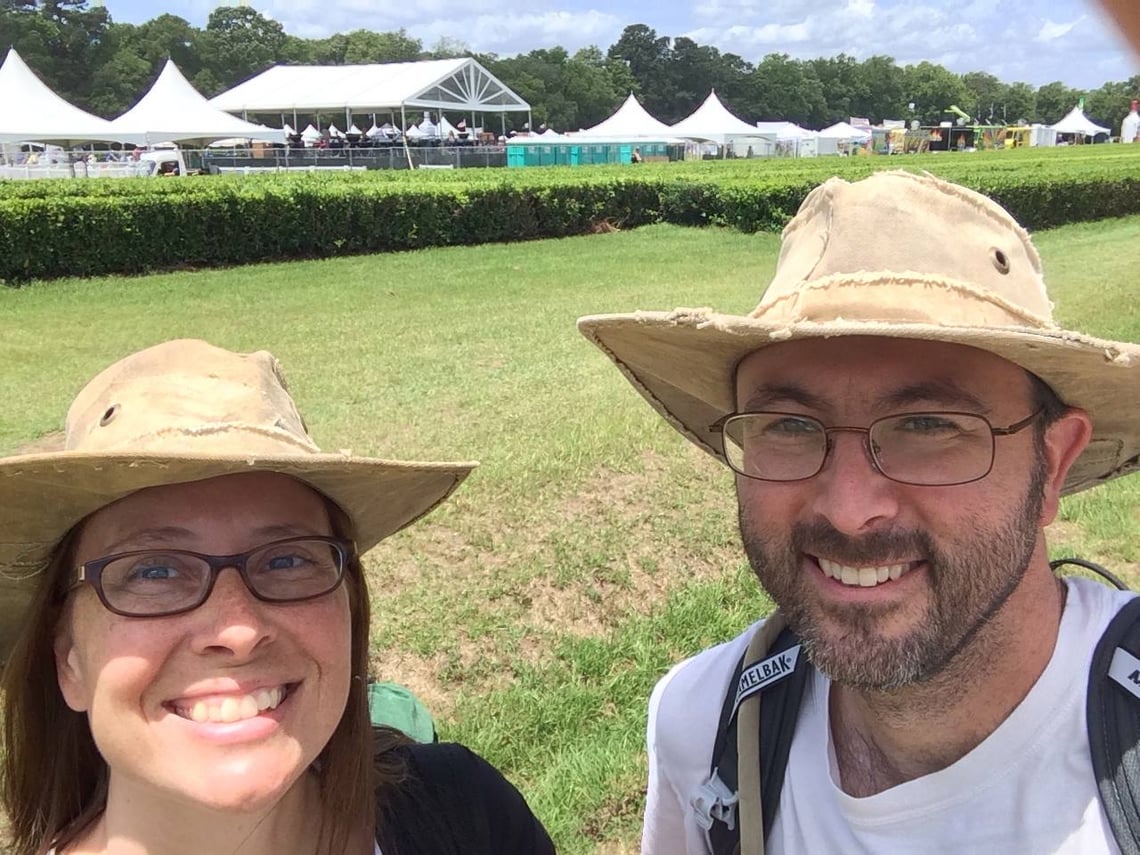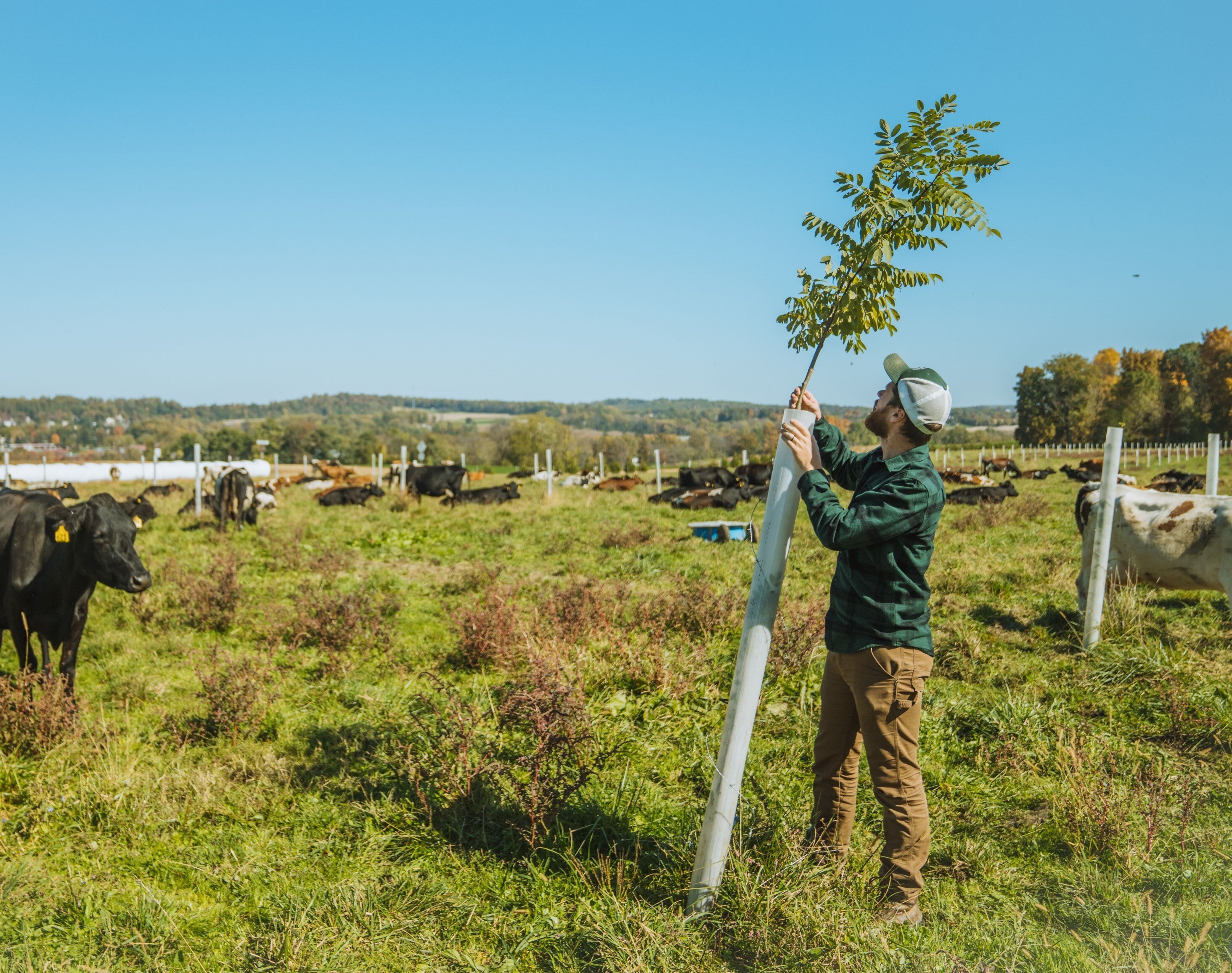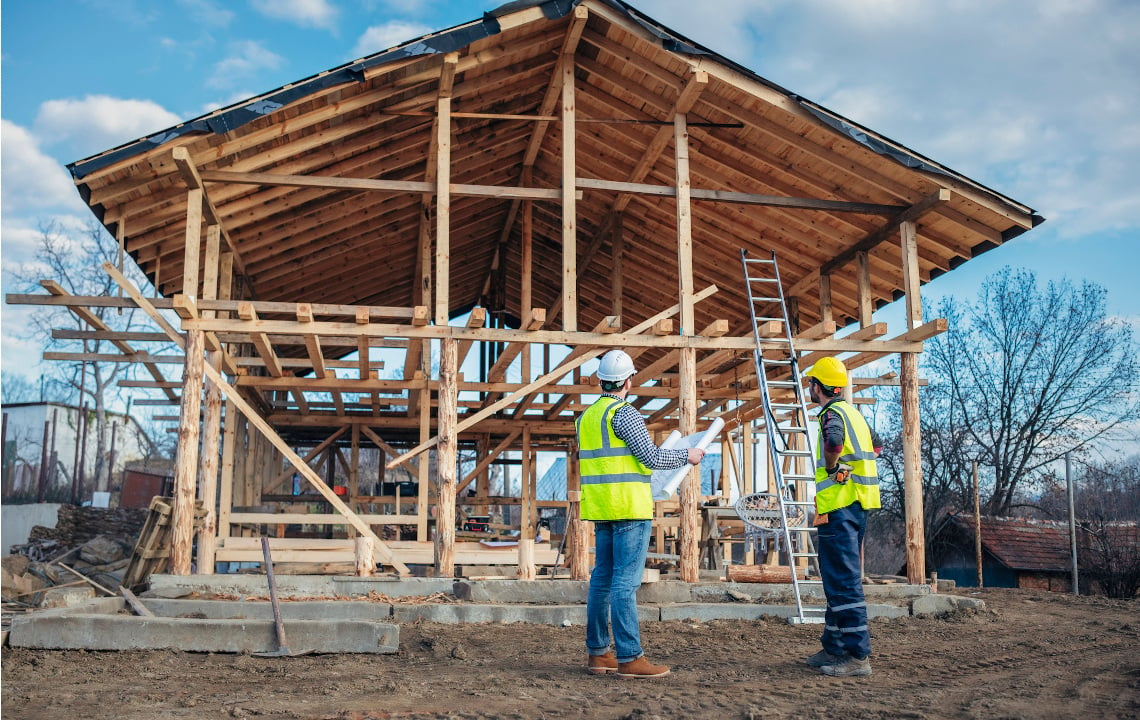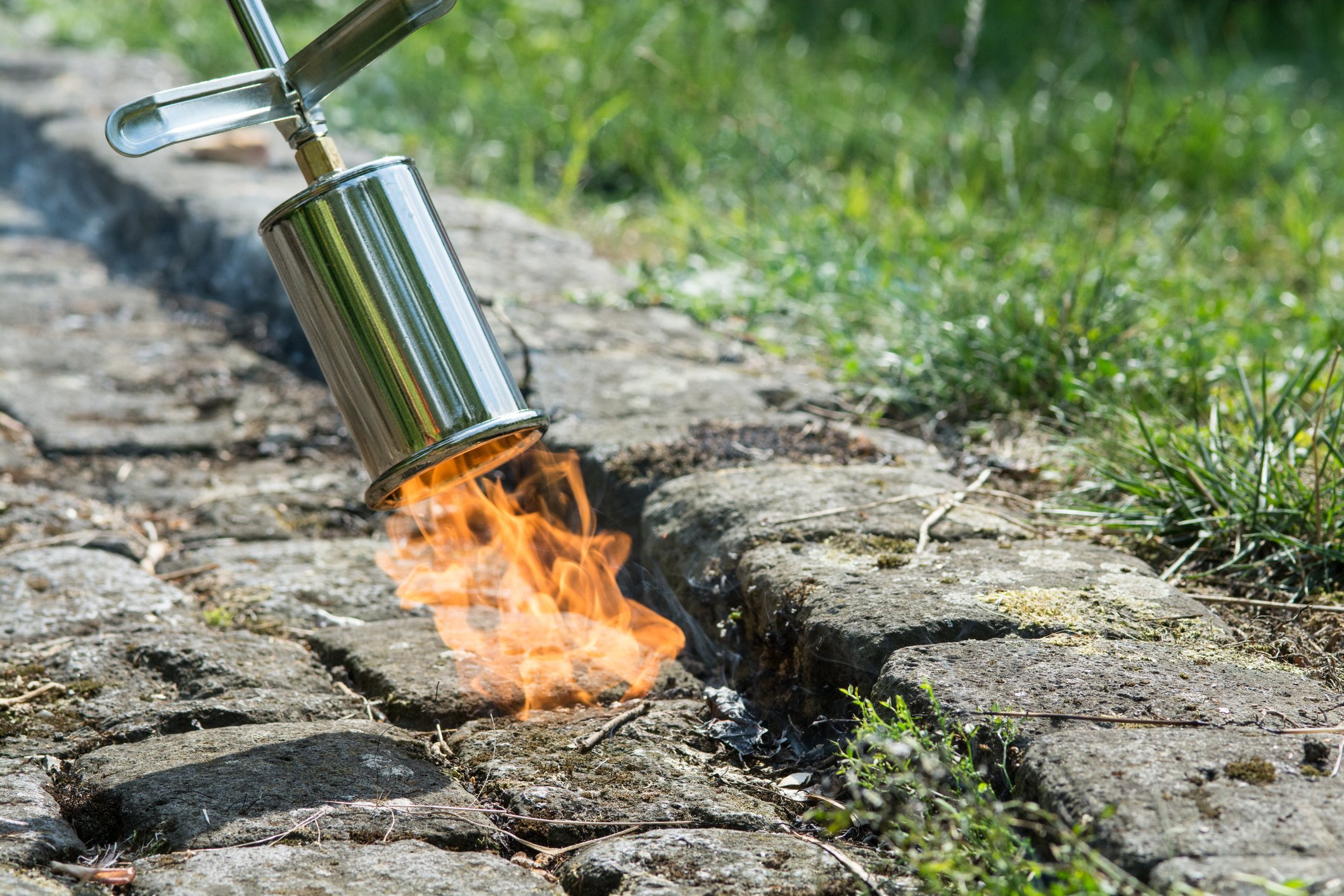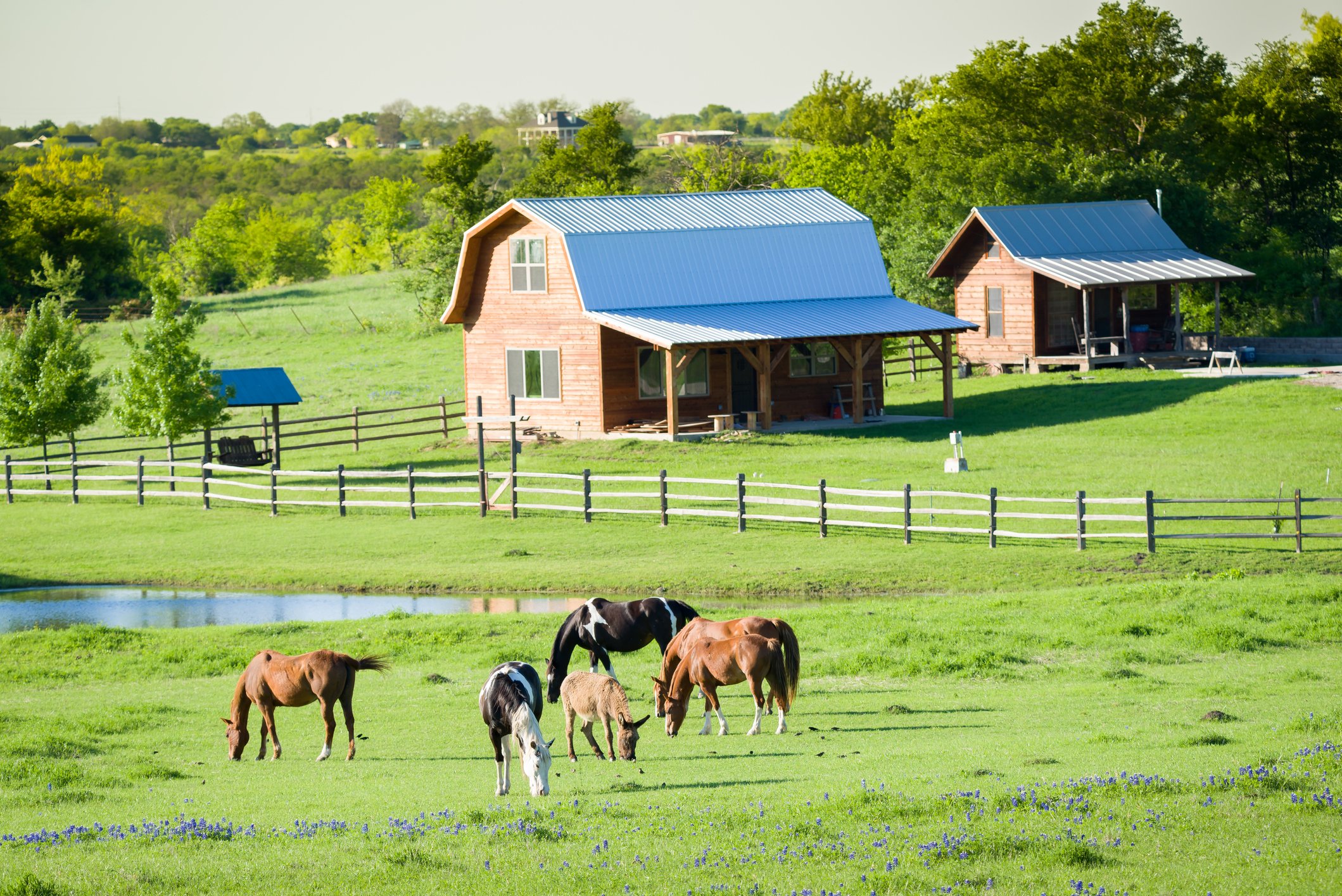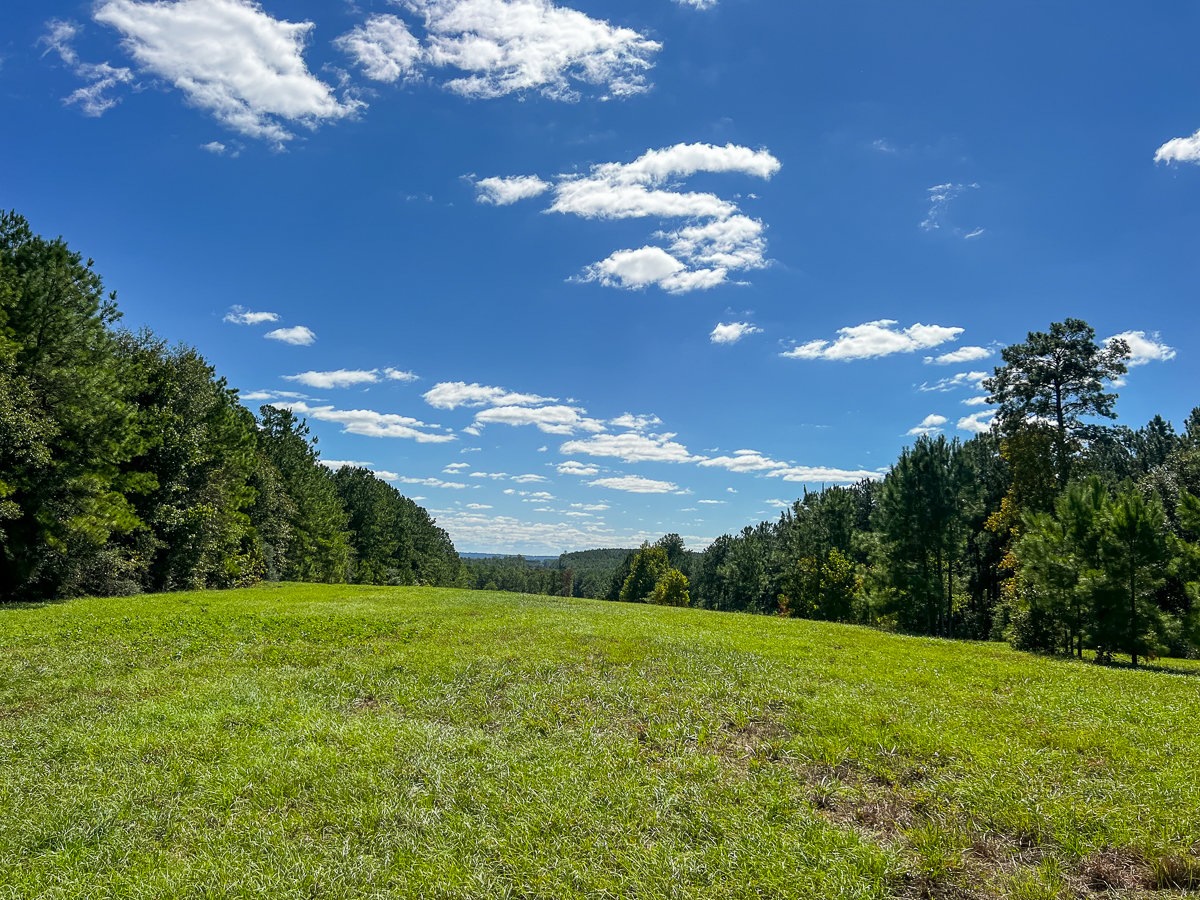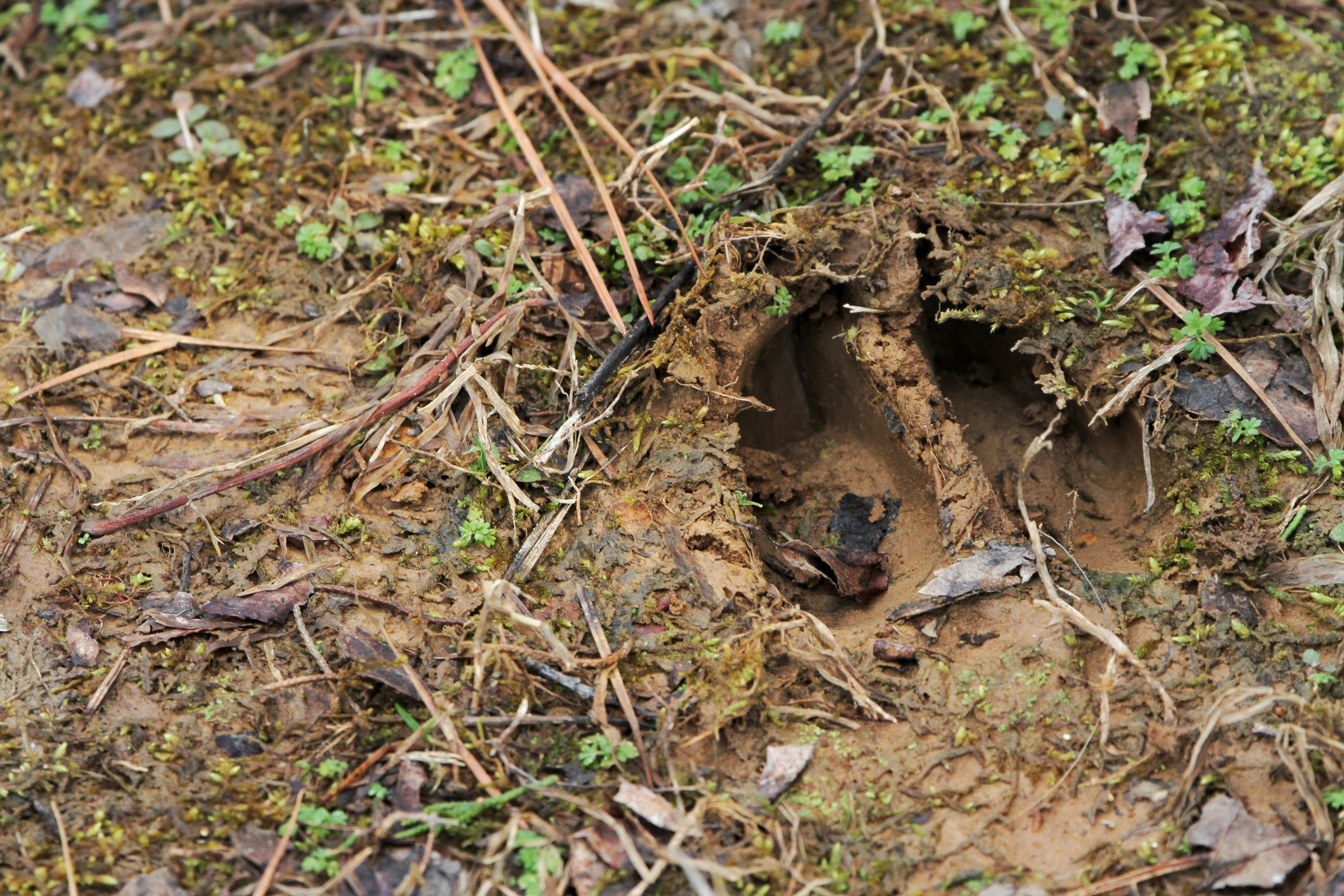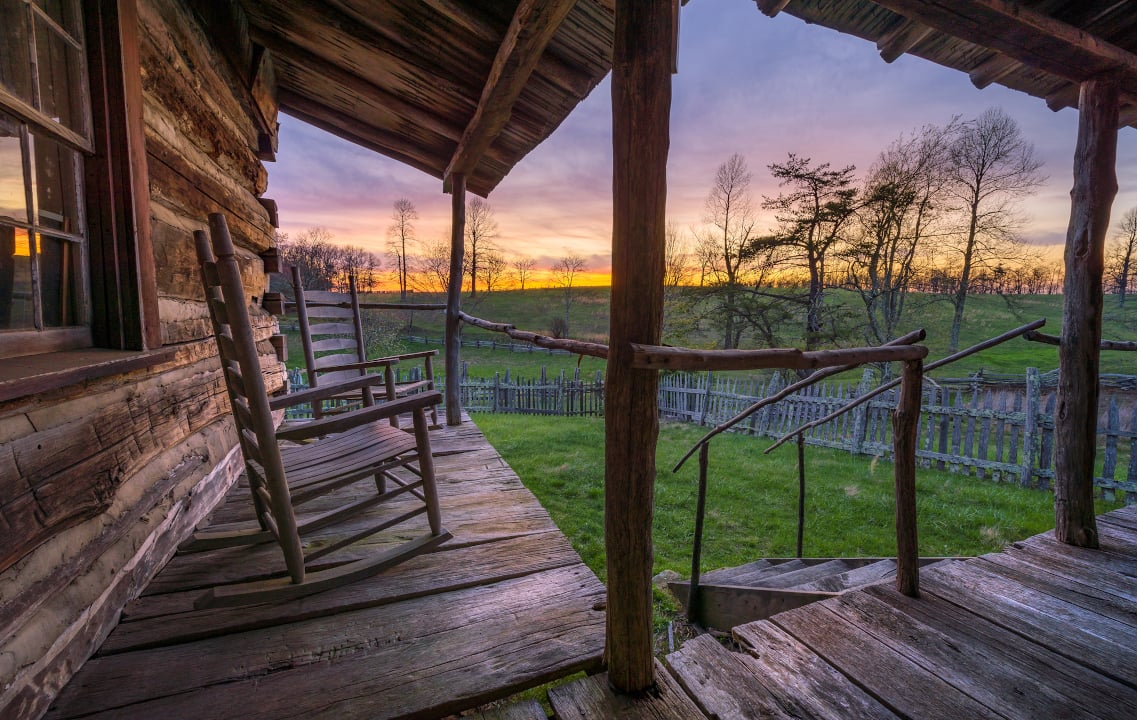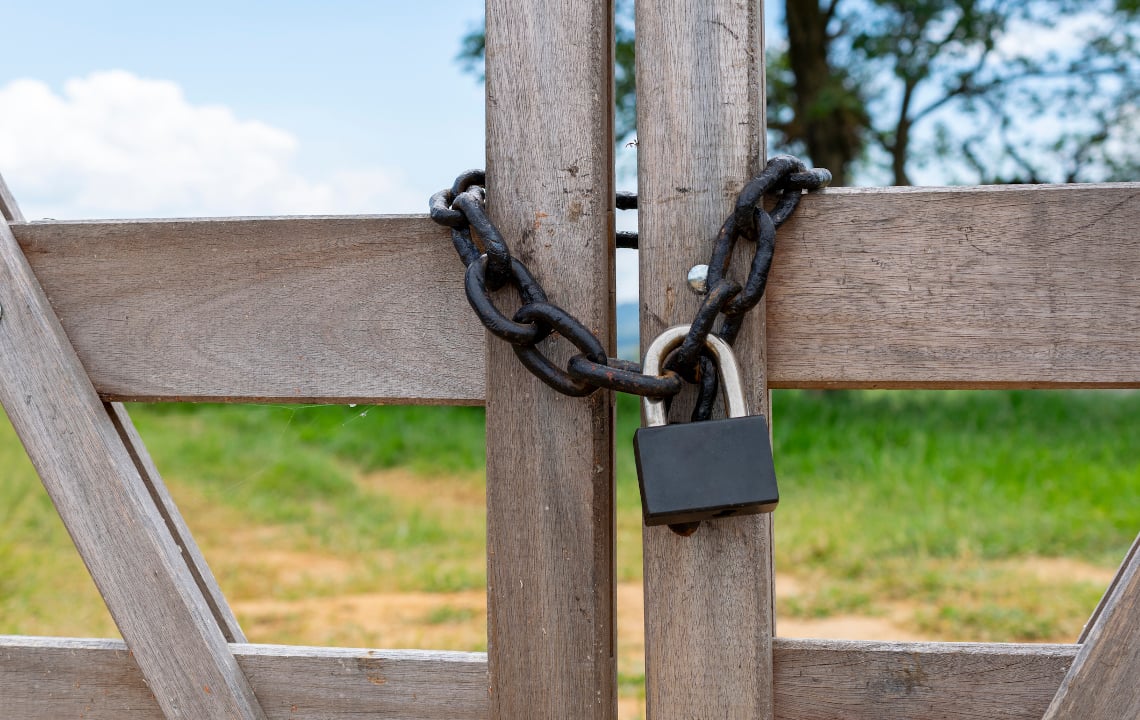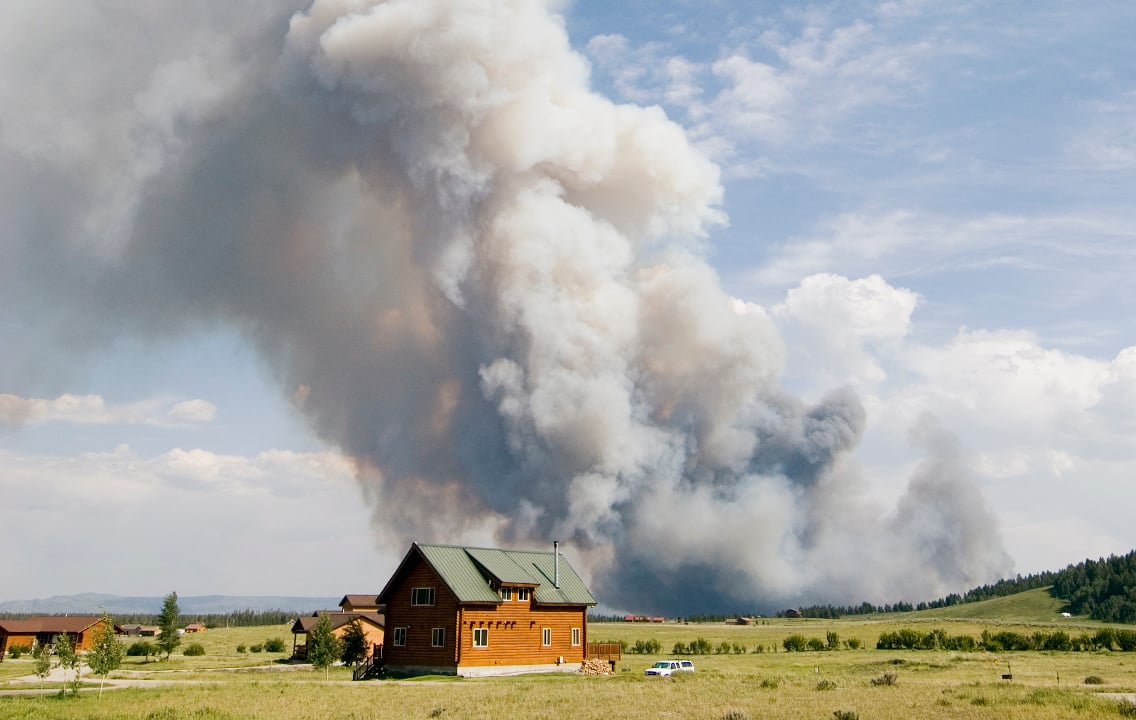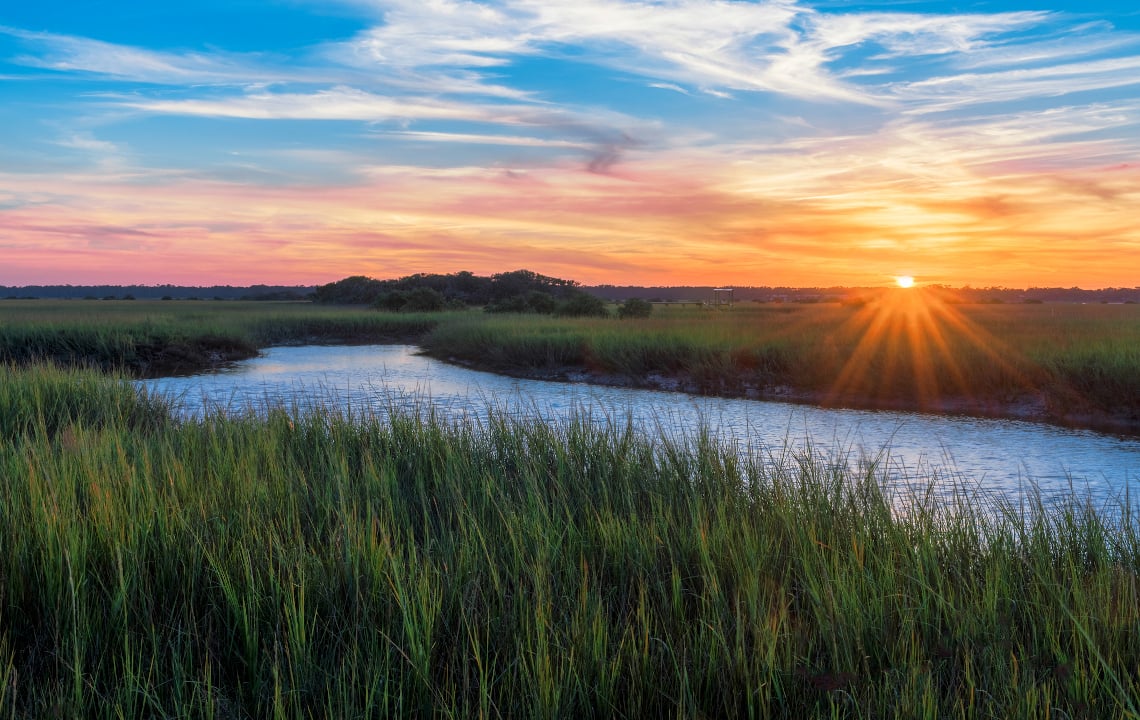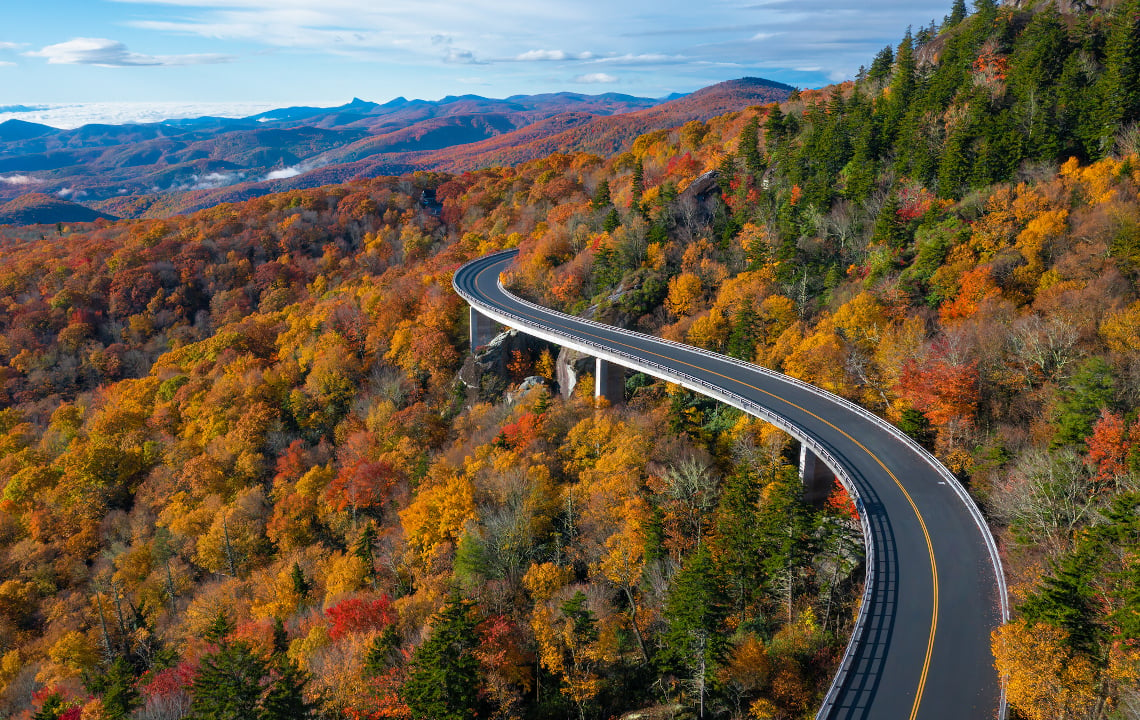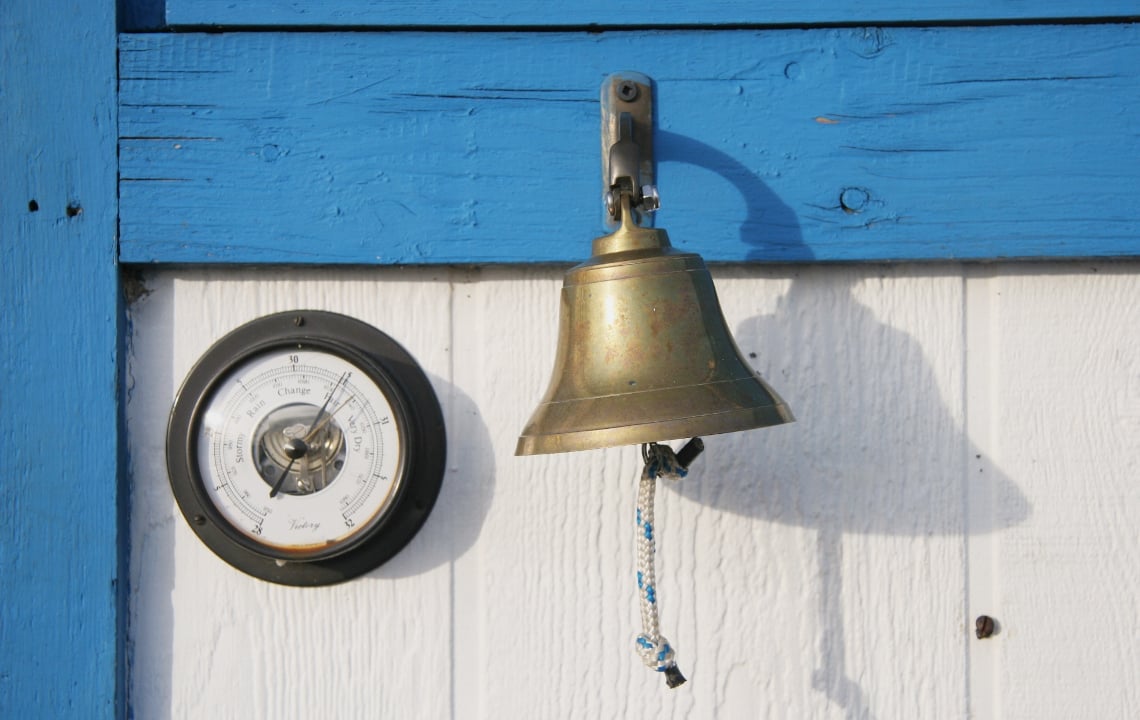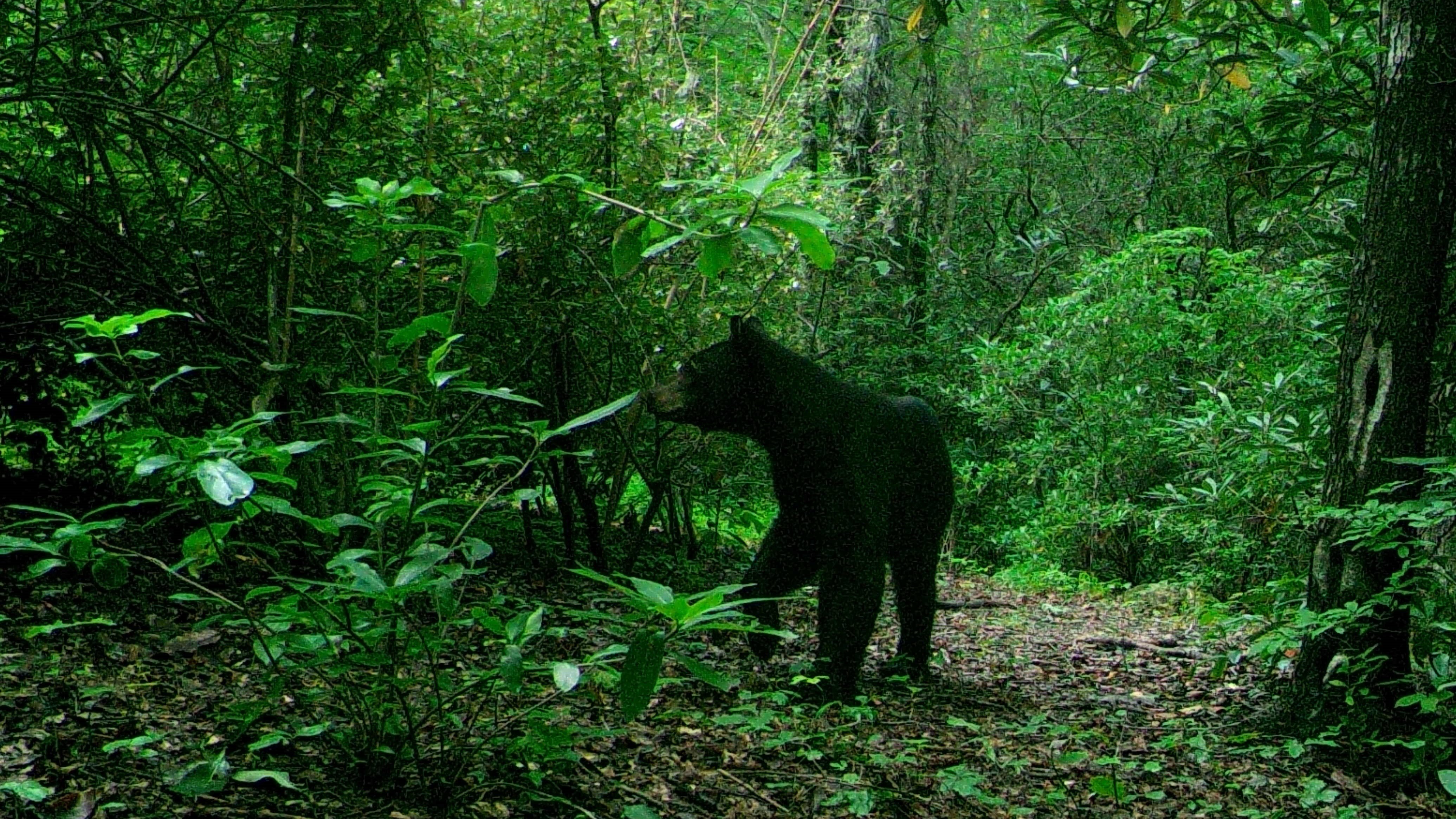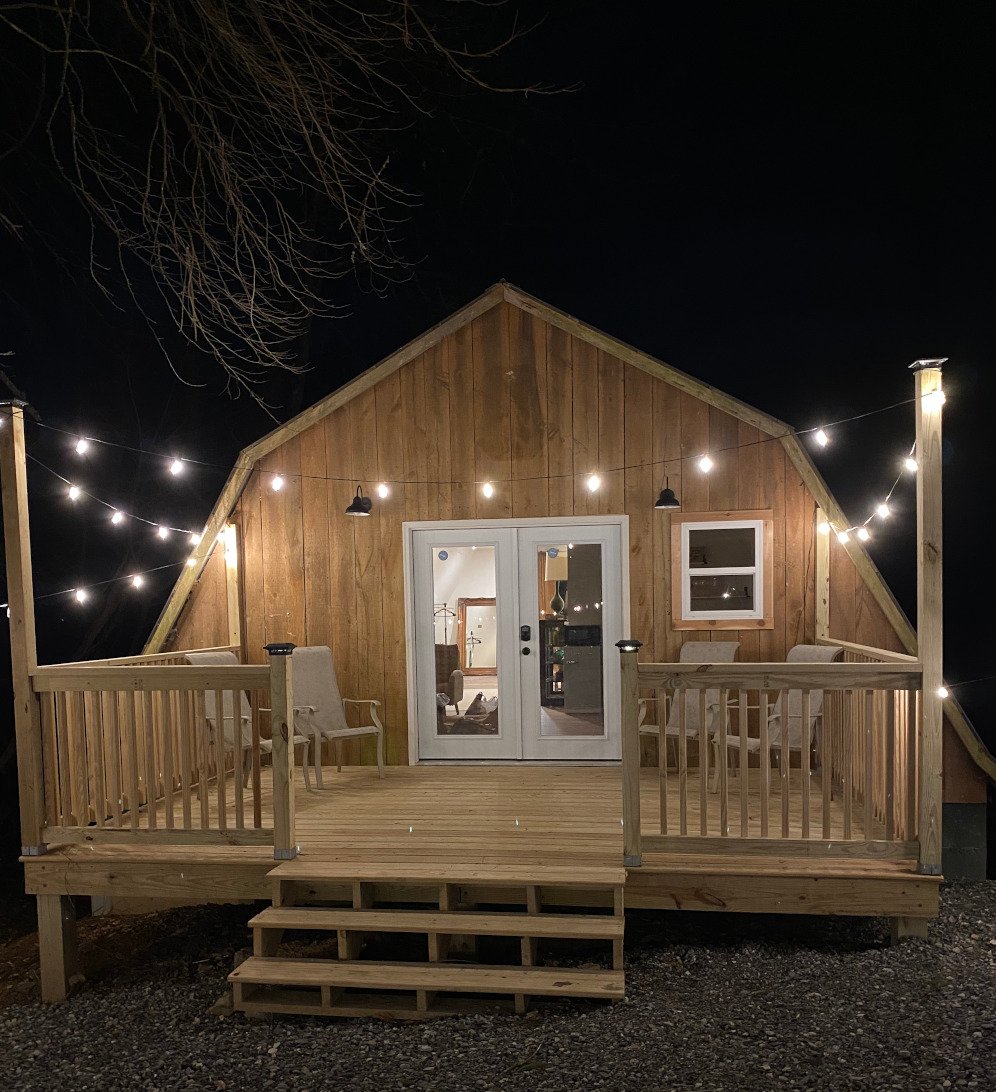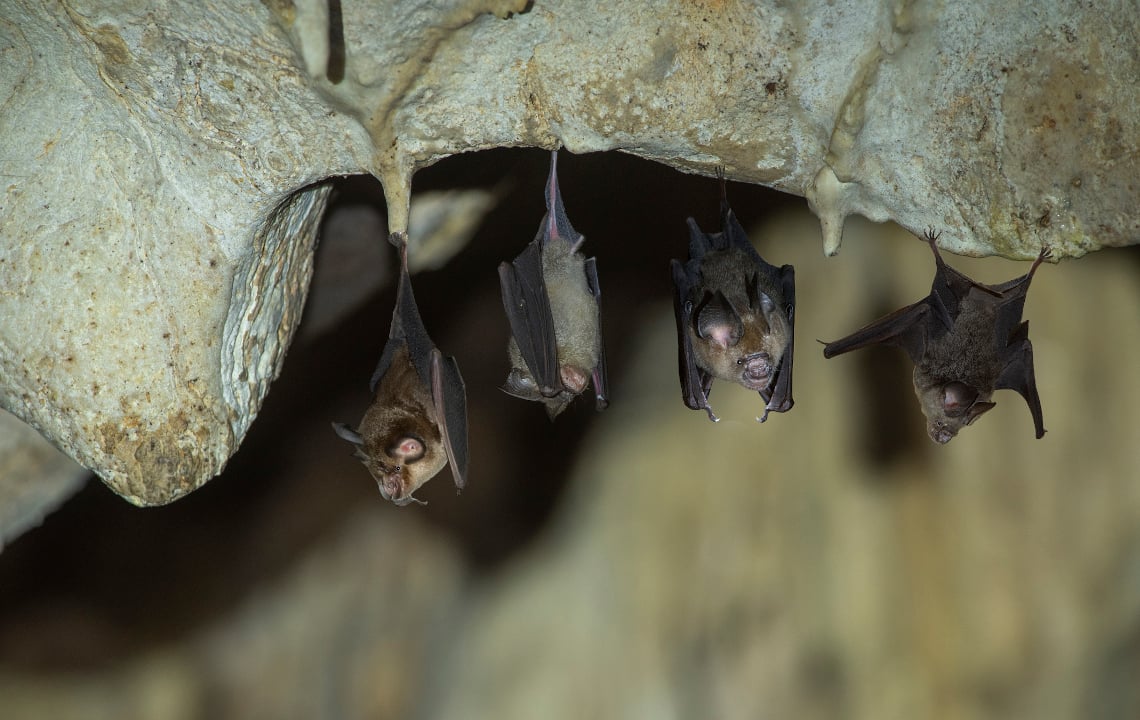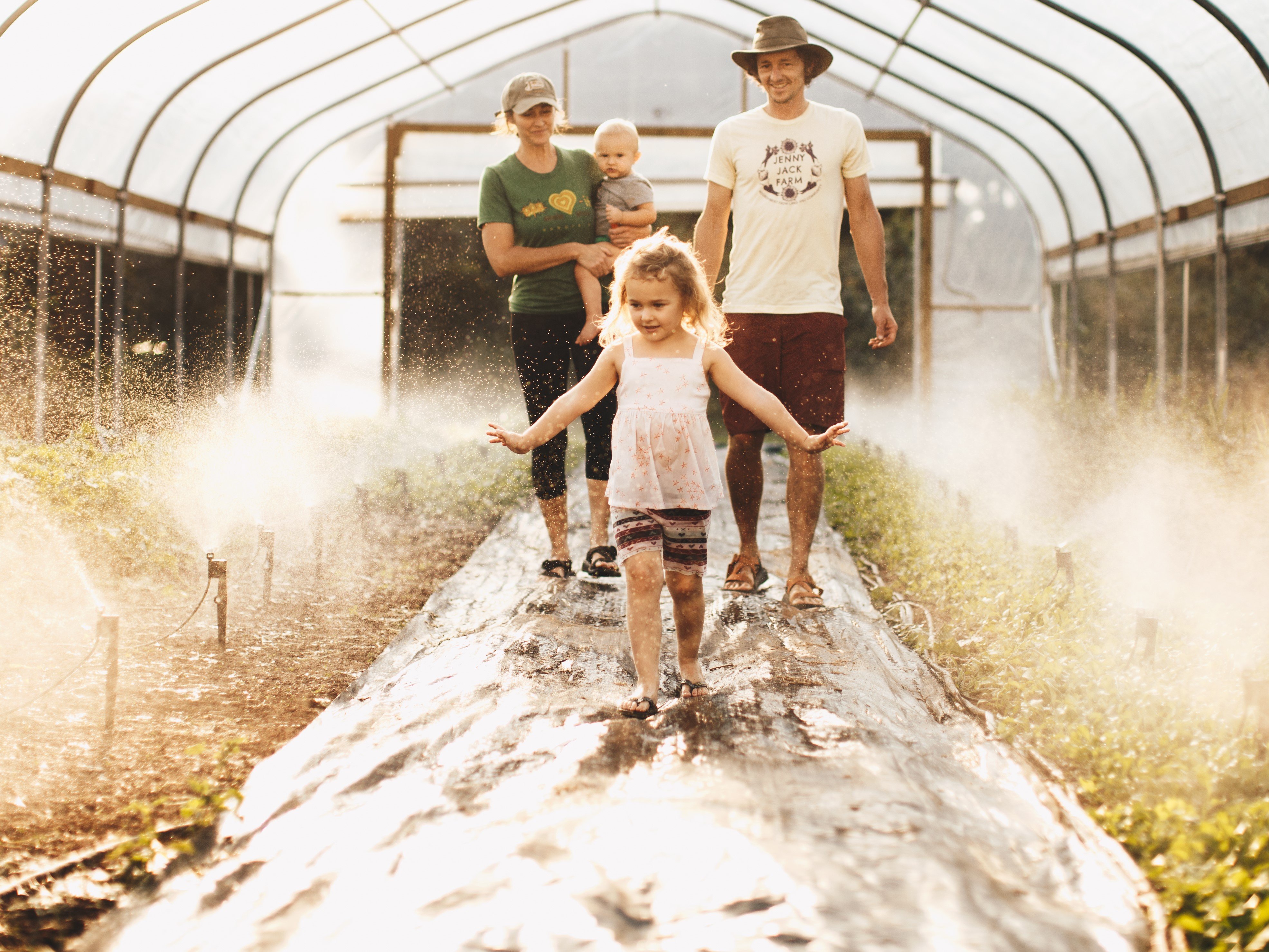Steve and Jennifer Lorch started a tea business at their South Carolina farm with a lot of hard work and persistence. Read their story and get inspired about what’s possible on acreage.
When Steve and Jennifer Lorch traveled to Kenya in 2006, they had no idea that a simple cup of tea would change their lives.
The couple had spent nearly a decade traveling the globe since founding Hydromissions International, an organization that installs water wells in remote communities. It was a water well drilling project in Kenya that brought them to one of Africa’s tea growing regions. And this was when they fell in love with tea.
“We were drilling wells in an elementary school in Kenya’s tea country, which is responsible for 20% of the world's tea,” said Steve Lorch. “That’s where we were introduced to tea and became inspired to start growing our own.”
When Steve and Jennifer returned to their home in South Carolina, they bought Camellia sinensis, the plant from which tea is made, and tended it. Their experiment worked and the tea leaves grew.
In 2008 the couple purchased 17 acres of farmland in Pickens
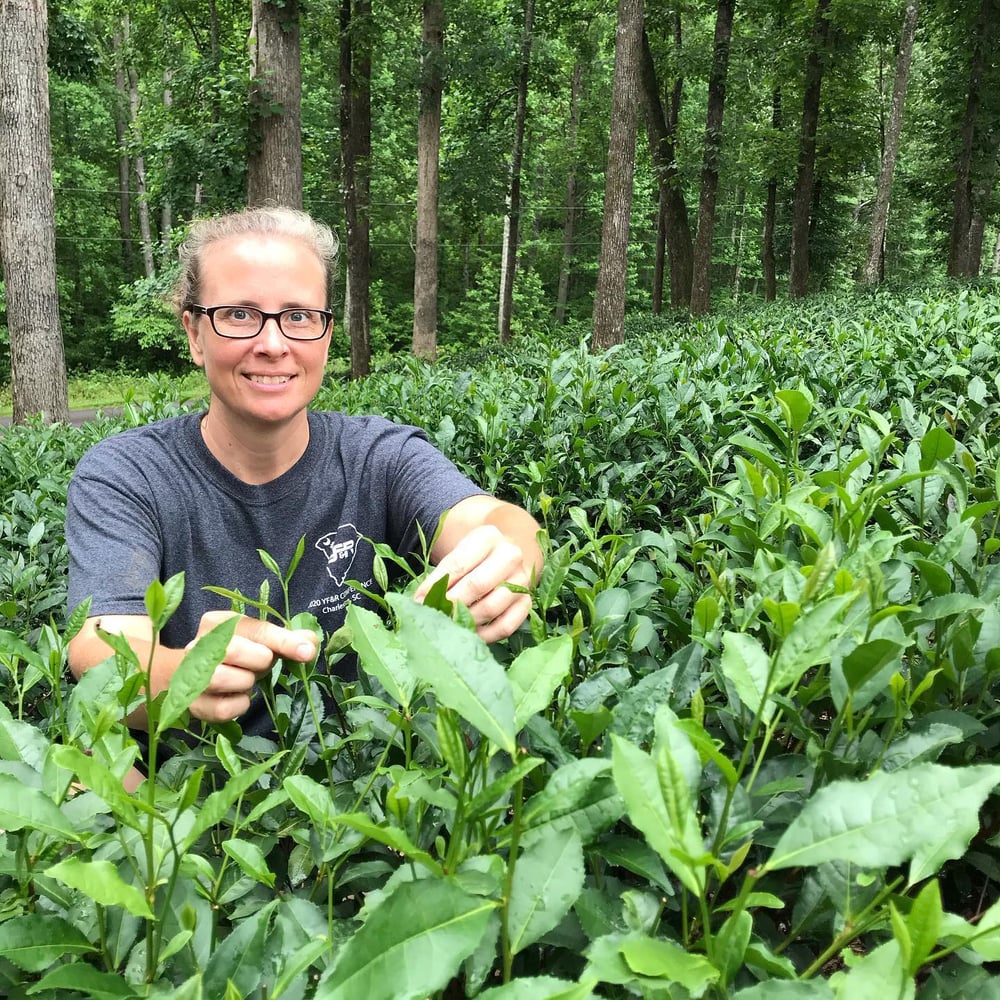
The idyllic property, which is nestled along the Cherokee Foothills at the base of Table Rock Mountain, would soon become a working tea farm.
“When we bought our farm we wanted to do an ornamental hedgerow with the tea plants at first. But by the time we figured out that we needed about 400 to 500 plants to do the hedgerow we just said well, why don't we just start a tea company?” Steve said.
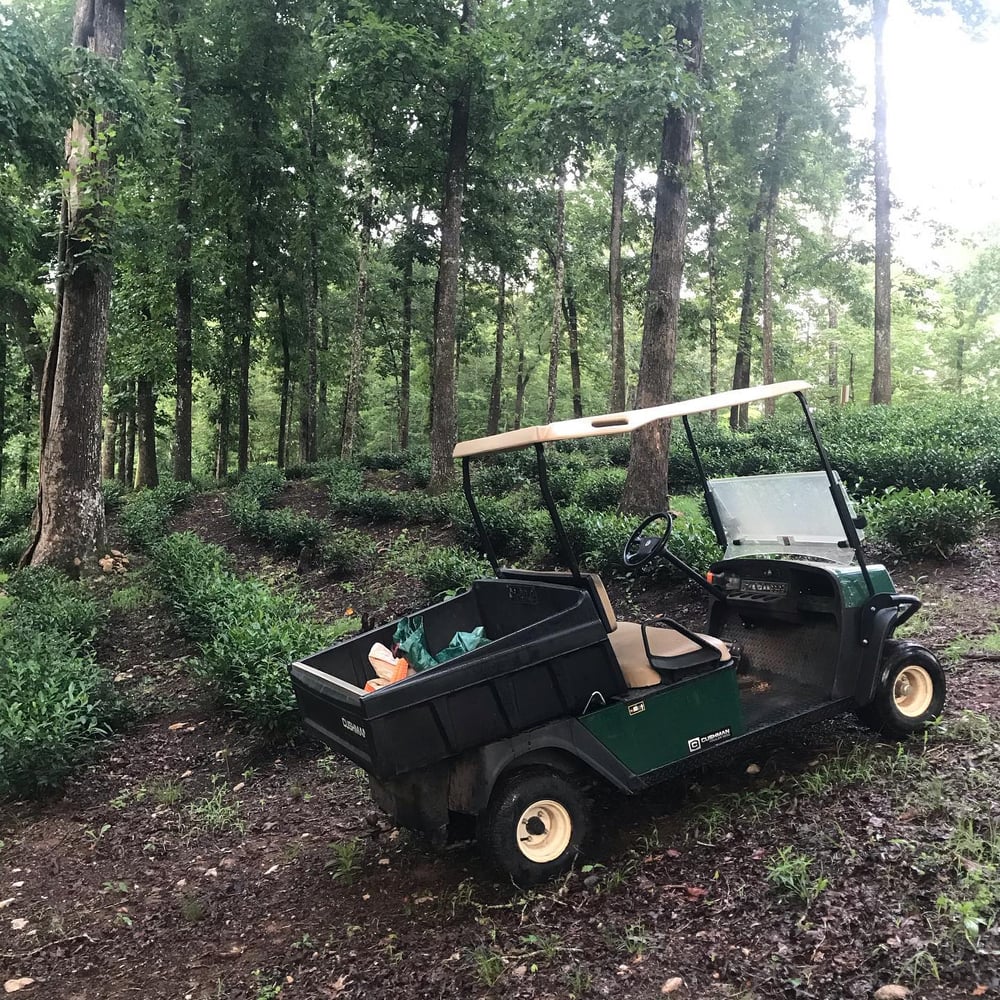
As they soon realized, the southern Appalachian climate just so happens to be ideal for growing tea due to the acidic pH level of the soil and the right amount of rainfall. “Anywhere you can grow blueberries you can grow tea. That’s usually the rule of thumb,” Steve explained.
The couple continued growing and experimenting with Camellia sinensis before officially launching Table Rock Tea Company in 2014.
They now grow thousands of tea plants on their farm, which is then processed and packaged in small batches. All of the tea is 100% US grown — with the exception of Marathon™, a Kenyan black tea. “We wanted to carry the same tea that comes from the same farmers who taught us about black tea back in 2006. It’s very important to us,” said Steve.
While Steve and Jennifer got their start with black tea, they also produce other kinds, including green, oolong, and orange tea. What’s surprising to learn is that all of these come from the Camellia sinensis plant. The only thing that changes is the processing method. 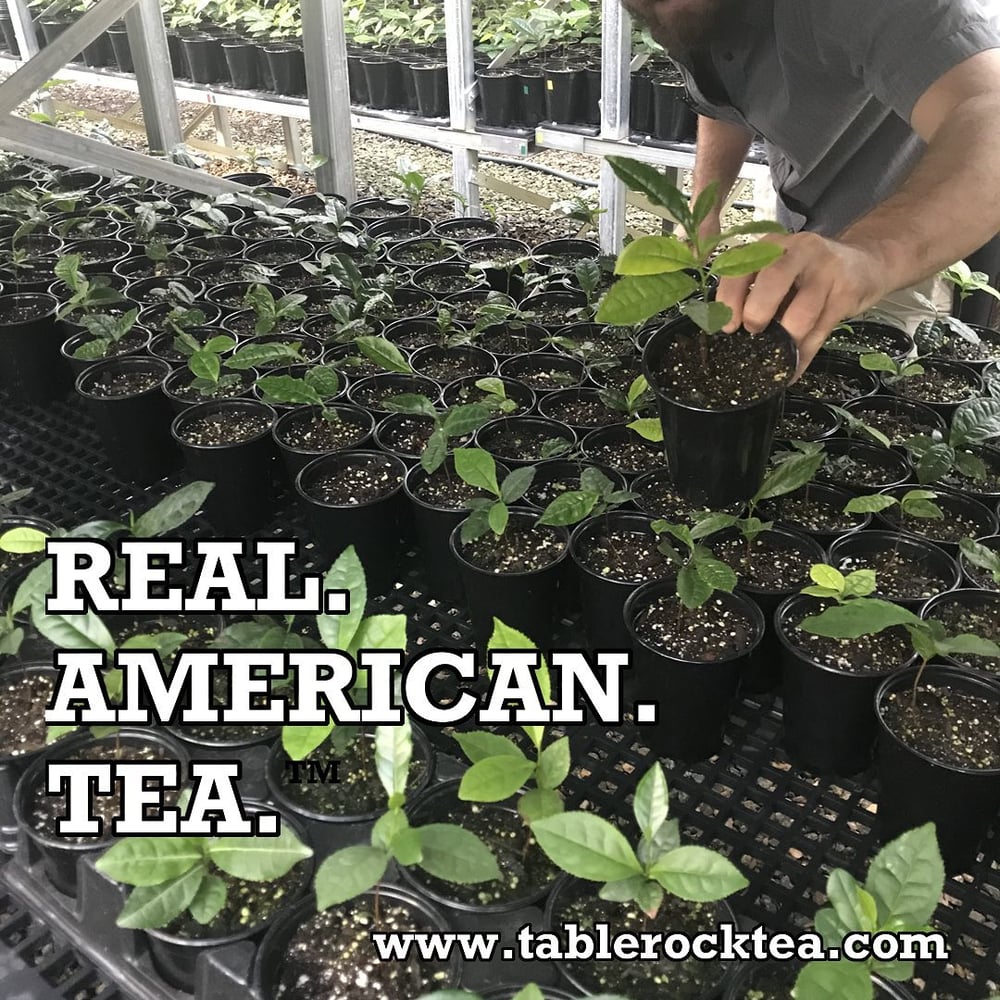
Of course, growing tea plants does come with its challenges.
“It’s not for the faint of heart,” said Steve. “We’ve had all kinds of things, from freezes to droughts, you name it. It’s hard to get started, but with persistence we’ve established ourselves as one of the leaders in US grown tea.”
In fact, Steve and Jennifer have learned to use South Carolina’s winter season to their advantage, and now produce a green tea called Winter Leaf™ that’s unique to their region. It also happens to be one of their best sellers.
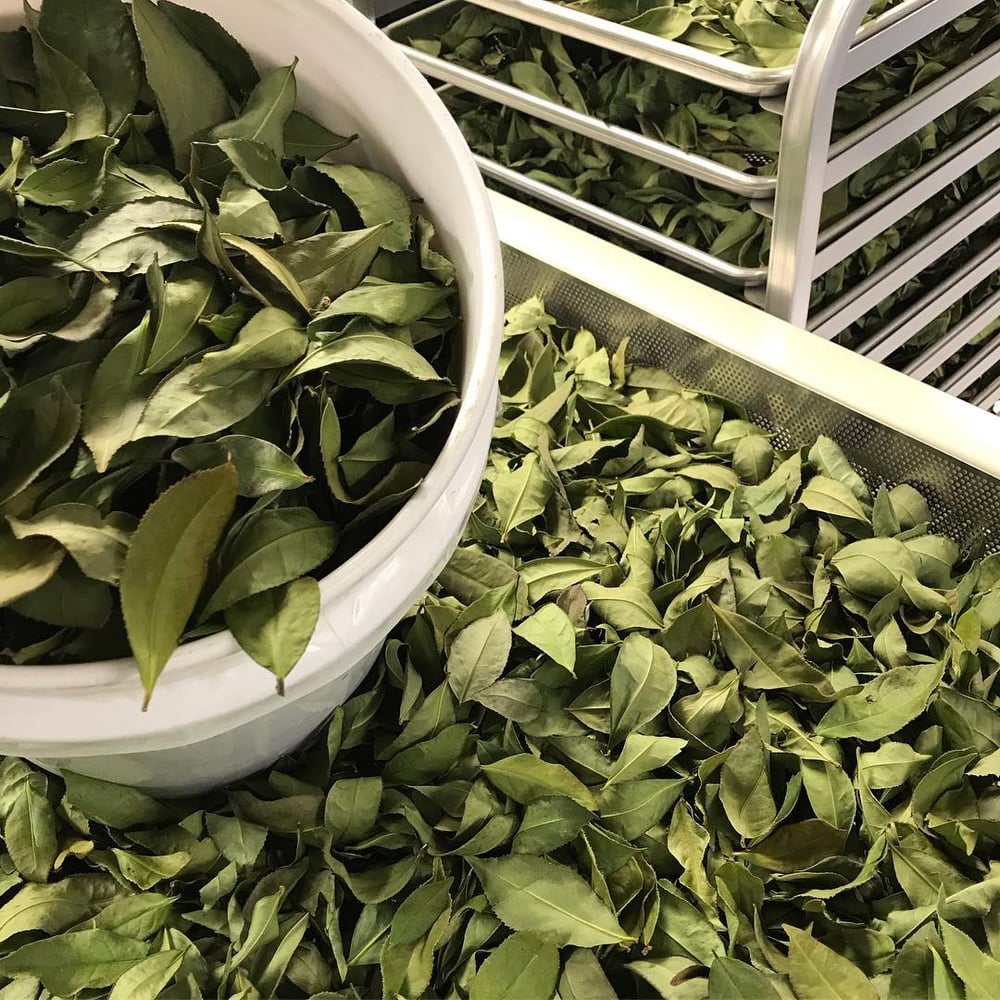
“Tea gets its flavor from terroir, or basically the microclimate where it grows,” said Steve. “Through a special technique that we developed a couple of years ago, we create a cold harvest green tea that can only be done when the plants are frozen and dormant. This process produces a green tea that doesn't taste like any other green tea on the market. It’s a very vibrant, bright green that is just really fresh. And we make it in the middle of winter. We also make a dark oolong tea here using our own technique that again, just produces a different flavor — our oolong has some notes of chocolate to it.”
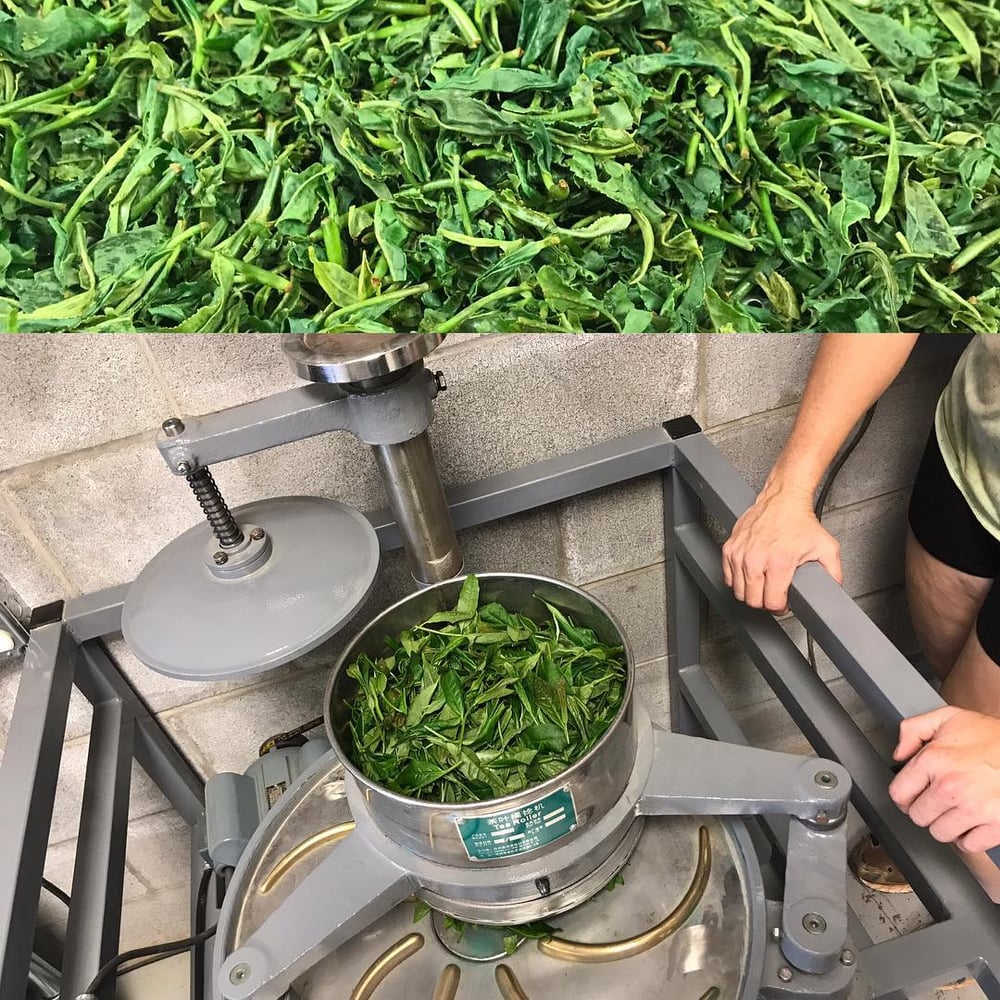
Agrotourism is also an Important part of their business
Steve and Jennifer offer educational tours of the grounds, greenhouse, and processing area for those who are interested in visiting the farm and learning all about their real American tea,
As an added bonus for tea lovers, camping is also available on the grounds through Hipcamp. Guests have the option to pitch a tent or reserve the cabin that’s within view of Table Rock Mountain (Table Rock Mountain is pictured below, and you can see the tea farm on the bottom left).
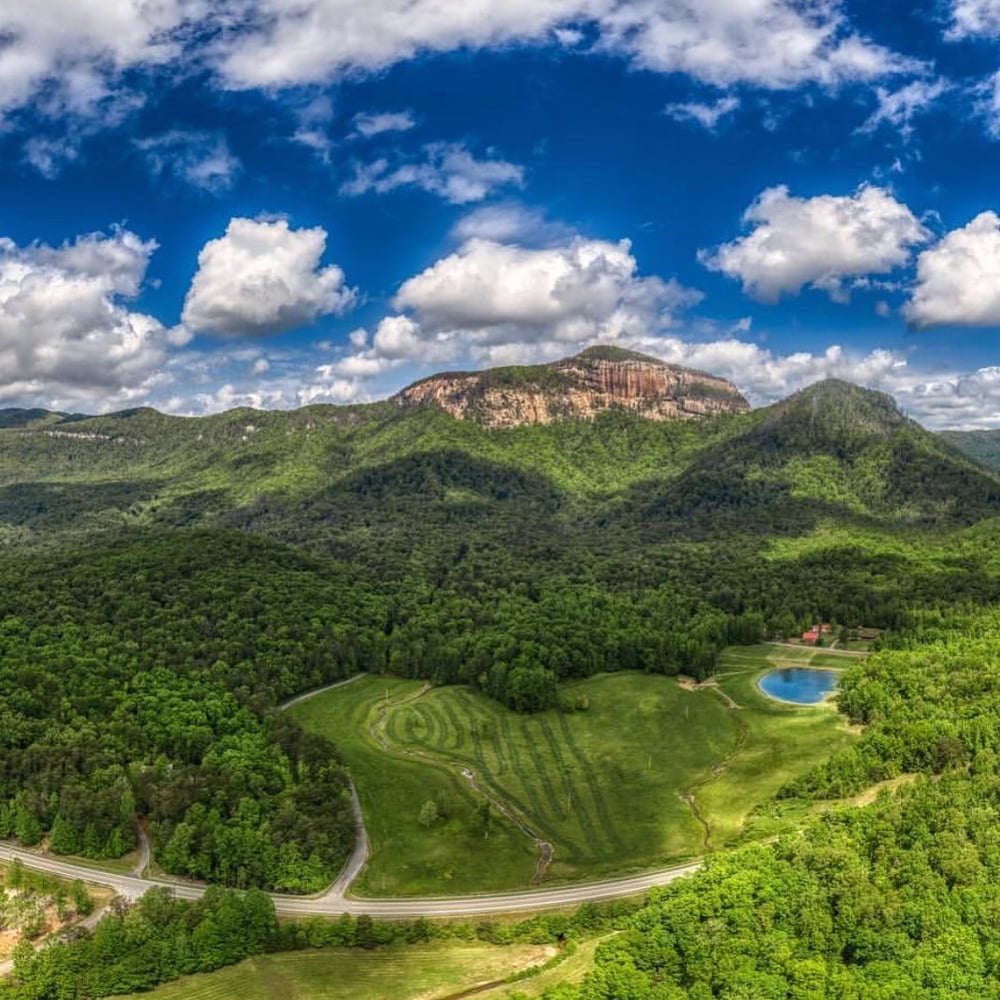
“Right now we only have about an acre and half under tea, but it will be expanding by two to three acres of tea every year from now on.”
As their tea business continues to grow, Steve and Jennifer are hoping Table Rock Tea Company will become the “Napa Valley” of tea. The only other well-known tea making facility in South Carolina is Charleston Tea Garden. Tea production is still not very common in the US, however it’s definitely gaining traction.
“There are a lot of people who are starting to grow tea now,” Steve continued. “Actually, we're a big part of that because we wrote a book called ‘How to Grow and Make Tea in the United States’. That book has become kind of the gold standard on how to grow and process tea in the US. So that's helped a lot of people get started.”
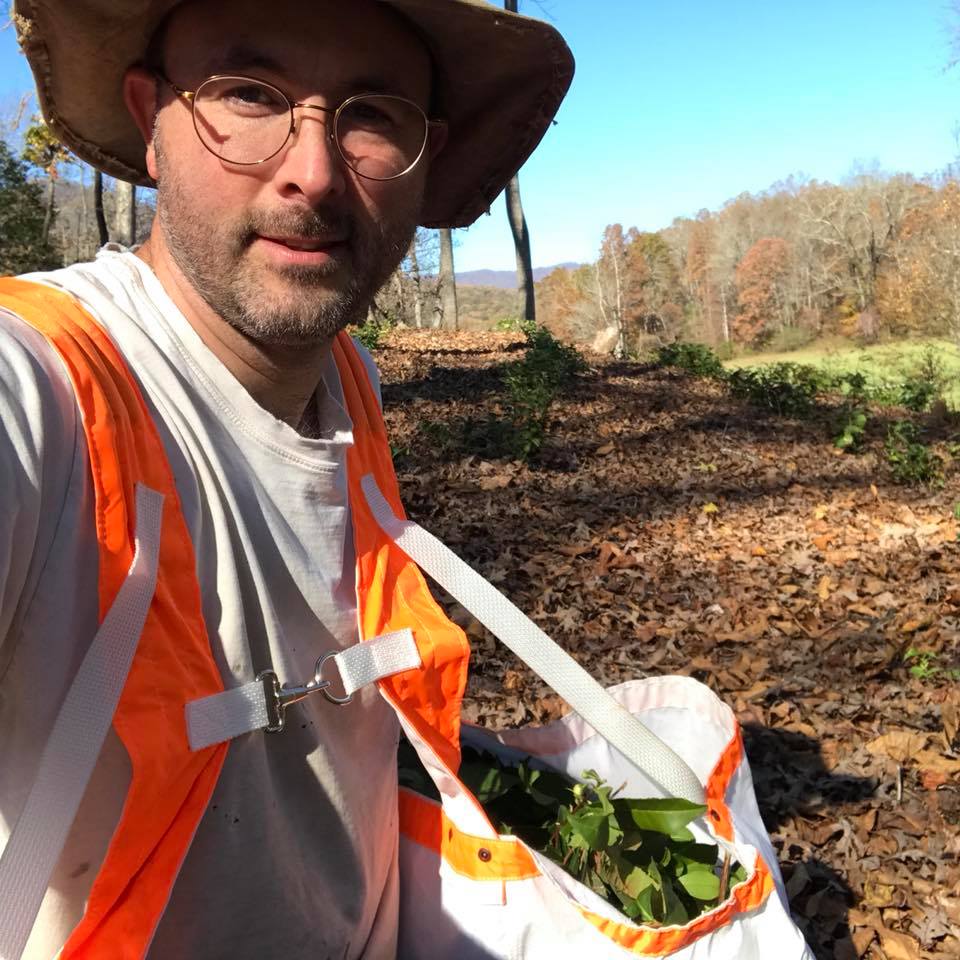
The Lorch's have held fast to their charitable roots
While Steve and Jennifer are no longer digging wells in remote corners of the world, Hydromissions International , which is now self-sustaining, is still providing clean water to remote communities all over the globe.
The industrious couple now helps small scale tea growers in developing countries with a new program they developed called ConnectiviTea™, where 10% of sales go towards charitable outreach. “We provide micro enterprise loans, scholarships, and expertise to get them up and running. And then when they're producing their product, we'll buy it back and launch a product line for that as well. So, it's kind of a full circle charity.”
To learn more about Table Rock Tea Company, visit them online at: www.tablerockteacompany.com or follow them on Instagram @tablerocktea.


